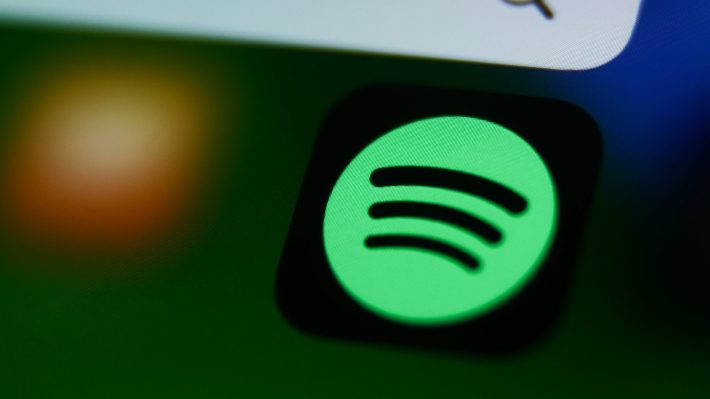Count Spotify among those not thrilled with how Apple has chosen to comply with the EU’s Digital Markets Act (DMA), which sets the stage for sideloading apps, alternative app stores, browser choice, and more. On Friday, the streaming music company issued its response to Apple’s new DMA rules, calling the new fees imposed on developers “extortion” and Apple’s compliance plan “a complete and total farce,” that demonstrated the tech giant believes that the rules don’t apply to them.
Apple earlier this week announced a host of changes that comply with the letter of the EU law, if not the spirit. The company said that app developers in the EU will receive reduced commissions, but it also introduced a new “core technology fee” that requires developers to pay €0.50 for each first annual install per year over a 1 million threshold, regardless of their distribution channel. It will also charge a 3% payment processing fee when developers use Apple’s in-app payments instead of their own.
Epic Games’ CEO Tim Sweeney, whose company sued Apple over antitrust concerns, already condemned Apple’s plan, saying it was a case of “malicious compliance” and full of “junk fees,” and now Spotify is essentially saying the same.
The streamer, along with Epic, Match, and others, has been a longtime critic of the tech giant and one that has pushed for increased regulation, including through the DMA.
In a company blog post and a series of posts on X (formerly Twitter), Spotify CEO Daniel Ek shared his thoughts on Apple’s DMA announcement, after a review by Spotify’s lawyers. He begins by calling the announcement “at best vague and misleading” and a “new low for the company.”
Ek says Apple’s solution is a “masterclass in distortion” as it presents app developers with a choice of sticking to the current terms or having to switch to a “convoluted new model” that initially may look attractive, but actually may come with higher fees. He points out that any app with tens or hundreds of millions of EU users would now face a new tax on every new download and update annually — something that would impact a number of larger apps like WhatsApp, Duolingo, X, and Pinterest, as well as Spotify’s own.
The system is clearly designed to keep apps from opting for alternative means of distribution like sideloading or alternative app stores. However, without the big apps available through these alternative channels, they’ll lose their appeal to consumers. Apple’s App Store will maintain its power, Ek believes.
Plus, because of the increased fees, Spotify doesn’t even have a choice, Ek explains — it’s forced to stick with the current system.
“Spotify itself faces an untenable situation,” he writes. “With our EU Apple install base in the 100 million range, this new tax on downloads and updates could skyrocket our customer acquisition costs, potentially increasing them tenfold. This as we have to pay on every install or update to our free or paid app, even for those who no longer use the service. So where does that leave us? Under the new terms, we cannot afford these fees if we want to be a profitable company, so our only option is to stick with the status quo. The very thing we’ve been fighting against for five years,” Ek says.
He signs off with a challenge to lawmakers, saying he hopes they recognize what Apple is doing and stands firm, and “doesn’t let their work over the years all be for nothing. The world is watching,” Ek writes.
Ek’s missive follows condemnation from both Epic Games and Coalition for App Fairness (CAF), a lobbying group whose members include Epic, Spotify, Tile, Basecamp, Match, Deezer, and dozens of smaller developers. The organization on Thursday declared that Apple’s new fees on direct downloads and payments they do nothing to process violate the law, and does not actually increase either competition or fairness in the digital market.
“Apple’s proposal forces developers to choose between two anticompetitive and illegal options,” Rick VanMeter, Executive Director of CAF said, in a statement. “Either stick with the terrible status quo or opt into a new convoluted set of terms that are bad for developers and consumers alike. This is yet another attempt to circumvent regulation, the likes of which we’ve seen in the United States, the Netherlands, and South Korea. Apple’s ‘plan’ is a shameless insult to the European Commission and the millions of European consumers they represent – it must not stand and should be rejected by the Commission.”
Mozilla has also come out against Apple’s new browser rules, calling them “as painful as possible.”
Apple shared the following statement after Spotify’s posting:
“We’re happy to support the success of all developers — including Spotify, which has the most successful music streaming app in the world. The changes we’re sharing for apps in the European Union give developers choice — with new options to distribute iOS apps and process payments. Every developer can choose to stay on the same terms in place today. And under the new terms, more than 99% of developers would pay the same or less to Apple.”
updated, 2/28/24, 2 PM ET with Apple’s statement
